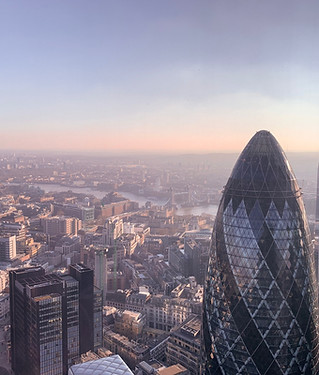
News

ARTICLE 10/24
ESG vs non ESG investments: a positive trend reversal around the corner for sustainable investing?
By Gianluca D’Alessio,
Head of Portfolio Management
ESG investments have shown mixed results recently. While sustainable strategies linked to environmental themes (like renewable energy and Green Bonds) delivered strong returns post-COVID due to monetary and fiscal support, the past two years saw significant challenges. Rising interest rates and geopolitical factors favored "old economy" sectors like energy and defense, causing ESG equities to underperform compared to non-ESG counterparts. The MSCI World ESG Leaders index, for example, lagged behind the traditional MSCI World by 2.8%. However, Europe’s ESG index outperformed slightly. Regulatory pressures, including ESMA’s rules on greenwashing, are pushing for more transparency, but uncertainty remains, with some managers downgrading funds. Luxembourg remains a key player in ESG investments, and the upcoming rate cuts might drive a recovery in the medium term.

ARTICLE 06/24
Luxembourg : un leader pour la distribution de fonds en Europe
Par Daniel Capocci, CEO & Mohamed El Kountami, Client & Project Officer,
Le Luxembourg s'est affirmé comme un leader européen dans la distribution de fonds, capitalisant sur son emplacement stratégique, sa réglementation robuste et son infrastructure financière avancée. Avec l'initiative de l'Union des marchés de capitaux, il facilite la distribution transfrontalière en renforçant la transparence. Le pays innove avec la fintech pour optimiser les stratégies de distribution, tout en mettant l'accent sur la durabilité et les critères ESG pour renforcer sa position en finance responsable.
FARAD I.M. aide les gestionnaires de fonds non européens à naviguer dans le marché post-Brexit, soulignant les avantages réglementaires et la confiance des parties prenantes. Cette approche attire des acteurs mondiaux comme BlackRock, consolidant le Luxembourg en hub financier européen majeur. Malgré des défis réglementaires et concurrentiels, le Luxembourg persiste grâce à son infrastructure solide et à son engagement envers l'innovation et la durabilité, soutenant la croissance des fonds ESG et des investissements durables.

ARTICLE 01/24
ESG vs non ESG portfolios: the impact of “Magnificent Seven” on ESG indexes and passive sustainable investing strategies
ESG strategies boost financial performance in sectors like renewable energy and healthcare. Major ESG indexes consistently outperform, with MSCI World ESG Leaders index surpassing traditional MSCI World by 1.80% in 2023. FARAD introduces GreenEthica Sustainable Reporting (GSR), aligning with 17 UN SDGs. GSR assesses ESG exposure, providing insights into environmental, social, and governance performance. It measures contributions to the 2030 Agenda, detailing ESG metrics, carbon emissions, controversies, Portfolio Active Impact (PAI), and SDG alignment, aiming for transparent evaluation. Despite debates, uranium gains prominence in 2023 for energy efficiency. GSR evaluates portfolios' sustainability impact transparently.

ARTICLE 10/23
The evolution of servicing within the investment fund industry
Investment funds are investment products created with the purpose of gathering investors’ capital, and investing that capital collectively through a portfolio of financial instruments. In a cross-border environment with an evolving complex regulatory environment, promoters and clients need to master financial and regulatory aspects to structure a fund in an optimized approach. . For this reason, they need to find out a valuable partner that helps them in this complex journey going from the structuring of the fund to the daily running of the same and passing for the launch phase.

ARTICLE 7/23
MANCO/AIFs : Préparez-vous à la mutation
Le monde des Management Companies & des AIFs luxembourgeois est en pleine mutation. Après quelques années de forte consolidation, le marché, quoique toujours actif, repart sur une dynamique différente. Dans ce contexte, il y a plusieurs éléments intéressants à souligner quant aux perspectives et évolutions de l’industrie à court mais surtout à moyen terme.

ARTICLE 6/23
Good governance and professionalism a “must have” for a successful business
Over the last few years the duties of the investment managers have notably widened, in terms of Governance, AML/KYC requirements, IT security requirements and last not least both sustainability disclosure and client preferences knowledge. Overall, the requirements to obtain the PSF license has substantially increased accordingly and once obtained companies need to assure an on-going monitoring and application of these requirements.

ARTICLE 9/22
FINMA restrictions: a challenge for Swiss unregulated asset managers
Originally, Within European borders, the regulator has implemented broad directives useful to clarify just the minimum requirements needed to act as a portfolio manager. Over the years, some countries have adopted strict and severe minimum requirements in terms of initial approvals and ongoing checks on asset managers activities, while some other gave them the possibility to have an easier access to the profession and softer obligations to respect and be aligned with.

ARTICLE 09/24
A new trend in Luxembourg: to delegate asset management responsibilities
By Daniel Capocci,
CEO FARAD Investment Management
A growing trend in Luxembourg is the delegation of asset management to regulated managers, driven by increasing regulatory requirements and automation. Investment fund managers (IFMs), such as management companies, delegate tasks like administrative management, pricing, and custodian services to specialized partners, allowing them to focus on strategic functions while ensuring compliance with regulations like the AIFMD. This practice, beneficial for managing non-traditional investments, reduces operational risk and costs. Regulated asset managers handle complex compliance and operational tasks, offering significant advantages, including efficient management, regulatory adherence, and cost savings.

ARTICLE 04/24
Tailored Wealth Management Solutions: ADEX
Interview with Nicoletta Morsut, Conducting Officer @FARAD I.M.
FARAD I.M. offers specialized asset management services through ADEX, integrating consultancy with portfolio management, catering to institutional partners' specific needs. ADEX ensures high-value expertise by collaborating with external advisors while maintaining direct accountability. Its open architecture approach grants access to portfolio management specialists, ensuring tailored solutions. FARAD I.M.'s main value lies in efficient, compliant processes matching client risk profiles with portfolio proposals. The investment process involves a contractual phase formalizing partnerships and an operational phase outlining workflows for advice generation and execution. ADEX's success lies in reducing advisors' costs while remaining actively involved in portfolio allocation. With 15+ years of operational excellence, FARAD I.M. ensures alignment with client needs in a fully compliant structure.

ARTICLE 12/23
Outlook 2024: the rise of a new multi-year bond cycle and the impact of COP28 for the rebound of energy transition investments
Key words for investment managers in 2024 will no more be only “inflation”, “FED pivot” and “economic growth/recession”, but also “bond investments”. The end of the sharpest interest rate hike cycle in the last decades led an increasingly attractive yield perspective, and next year could be a turning point for investors, with significant inflows in the bond market thanks to an interesting risk/return profile, especially compared to some expensive equity areas/styles, while COP28 pointed out the needs and positive perspective for environmental oriented investments.

ARTICLE 7/23
ESG vs non ESG portfolios: sustainable investing as the real winner of the new inflationary framework
In this uncertain market framework, last macroeconomic data releases seems providing encouraging signals that central banks are succeeding in slowly easing inflationary pressure, despite still not leading to severe negative impacts on economy leading indicators and labor market. After a tremendous 2022 for major markets and also for sustainable investing, the investment managers could face a more favorable macroeconomic environment to re-enter among equity and bond markets with an enhanced ESG awareness and with an improved market recognition of company ESG efforts

ARTICLE 5/23
Latest updates and evolution regarding the SFDR regulatory framework
The Sustainable Finance Disclosure Regulation (SFDR) entered into force on March 10, 2021, fully implemented as at 01st January 2023, continues to evolve in order to respond to the market questions and fill the gap between regulation and market practices.
On 5 April 2023, the European Commission published its response to eight questions on the interpretation of SFDR that were submitted by the ESAs to the Commission on 9 September 2022. The Commission has also revised and amended its previous Q&A in order to ensure consistency.

ARTICLE 11/22
Sustainability reporting challenge for alternative investments
The Sustainable Finance Disclosure Regulation (SFDR) entered into force on March 10, 2021. In particular, it requires financial players to enrich their investment policy, which must detail how sustainability risks are integrated into investment processes and they will now have to declare the negative impacts of investment decisions on sustainability factors.
In this context, FARAD I.M. developed a unique sustainable analysis service for alternatives, called GreenEthica Sustainable Scoring System for Alternatives,

ARTICLE 07/24
Domiciliation in Luxembourg – how does it work?
Daniel Capocci, CEO & Nicoletta MORSUT, Conducting Officer,
Pour créer une société au Luxembourg, une adresse et un bureau opérationnel sont nécessaires. La domiciliation permet à une entreprise d'utiliser les locaux d'un tiers comme siège social, utile pour les entreprises n'ayant pas besoin de locaux propres, mais interdite pour les entreprises commerciales. Régie par la loi de 1999, la domiciliation ne peut être effectuée que par certaines professions réglementées, comme les établissements de crédit et les avocats inscrits. Les services incluent la fourniture d'une adresse, la conservation des documents et des services administratifs. FARAD Investment Management offre des services de domiciliation autorisés par la CSSF depuis 2014.

ARTICLE 03/24
FARAD Group B-Corp for more than 6 years, an exception
In today's business landscape, firms increasingly integrate Environmental (E), Social (S), and Governance (G) aspects. B-Corp certification symbolizes dedication to broad social responsibility. B-Lab certifies businesses meeting these standards; over 8,000 worldwide proudly bear the B-Corp title. In Luxembourg, FARAD Group, the second certified B-Corp since 2017, exemplifies this commitment. B-Corp status signifies prioritizing stakeholder welfare—people, communities, and the planet. It's not just about business success but positive impact. Certification reflects excellence, accountability, and transparency. FARAD Group members elaborate on its significance and implications.

ARTICLE 11/23
Effectiveness and comparability as key drivers for sustainability reporting
Though sustainability metrics transparency and data availability are constantly increasing among UCITS funds and liquid investments, market standards within alternative investments are still in a development stage. ESG KPI assessment, GHG emission and PAI analysis, as well as SDG alignment are crucial to provide an effective sustainable analysis for alternatives.

ARTICLE 7/23
MANCO/AIFM:
Get prepared for the
real evolution
The Luxembourgish Management Companies (ManCo) and AIFs landscape is experiencing a notable evolution. Following a period of substantial consolidation, the market, while remaining active, is now characterized by a distinct shift in dynamics. In light of these circumstances, there are several noteworthy elements to underscore regarding the industry’s prospects and developments in the short and, more significantly, medium term.

ARTICLE 4/23
Innovative solutions for sustainable investing and reporting
The increasing interest in sustainable investing is reflected in the regulatory framework surrounding sustainability reporting. In this context, FARAD I.M. has developed a unique sustainable analysis service called GreenEthica Sustainable Reporting (GSR). This service targets to deliver an effective, synthetic, and clear sustainability reporting with detailed information on ESG metrics, carbon metrics (CO2 emissions), controversies, PAI, as well as a unique alignment to SDGs. The objective of the analysis is to determine positive or negative contributions of the funds towards sustainability factors and to determine the sustainability impact.

ARTICLE 10/22
Fund Distribution from Extra-EU: New opportunities for licensed players
As is now well known, United Kingdom left the European Union in the context of the Brexit act early 2021. One of the main implications of the new regulation is that UK companies cannot anymore approach directly EU customers while doing their fund distribution businesses.
These companies are now facing the current reality: they lost “overnight” the ability to deal directly with European customers and in many cases, at least temporarily, also the ties with even long-standing customers.

FARAD Investment Management complies the SFDR regulation thanks to GreenEthica Sustainable Scoring System
ITALIAN PRESS RELEASE
FARAD Investment Management, the management company of the FARAD Group presents GreenEthica Sustainable Scoring System (GSSS) the first sustainable scoring system based on alignment with the SDGs.

FARAD Investment Management announces the relocation in the heart of Luxembourg city-center
PRESS RELEASE
FARAD Investment Management, the independent asset manager is relocating. The company is moving to 11-17, rue Beaumont in the heart of Luxembourg-city. The building has officially open for business starting from 1st August 2021.
